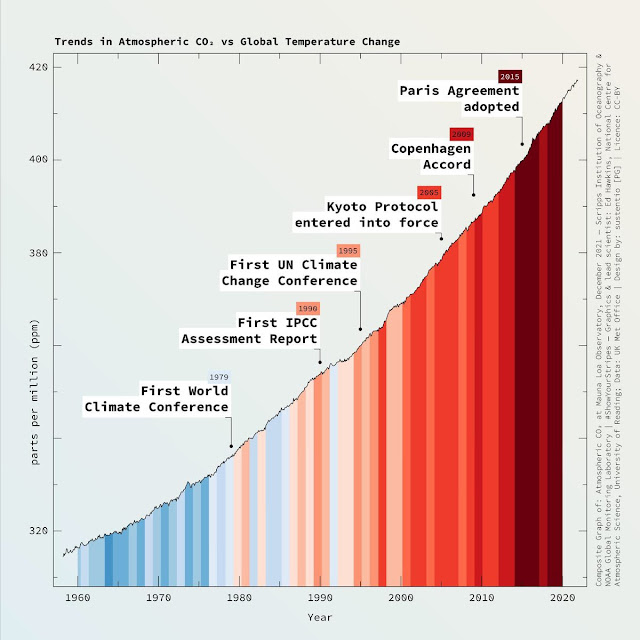There are many problems the world is trying to solve in 2022: the climate crisis, restarting after COVID, inequality, war, just to name a few. We count on our politicians and representatives to make decisions that will not only benefit us today, but will lead to a better, safer, more stable and equal world tomorrow. Here’s the problem: lots of the people in positions of power, with the ability to make the decisions that will wind up impacting the state of the climate in 30 years will not be around to experience the consequences of their decisions. The choices of past generations may have brought them comfort, profits and convenience , but these decisions also created polluted water and air and unjust social systems that my peers and I must now find a way to correct. Our survival will depend on the ability of my generation to overcome environmental damage resulting from short sighted decisions made by policy makers from earlier generations.
At Creative Investment Research, we contend that no one over the age of 35 should be allowed to make environmental and climate policy decisions. We do not disregard the work they have done to benefit their communities, the wisdom they have accumulated during their time in service, or the roles they have worked to earn. However, we do not feel that it is fair for them to choose the fate of those coming after them. Earlier generation, specifically Baby Boomers, will not have to deal with the long term health impacts of choosing to emit more greenhouse gasses today. Further, it appears that Generation X will not be significantly impacted further by systems that continue to discriminate against minorities and women.
We are grateful for the many wonderful things that past generations have done for us, the opportunities they have created, the innovation and creativity, etc. But we cannot ignore the fact that they also made many mistakes that now threaten the earth and stability of our society. Since we will have to live with the results of climate policy decisions made now, and since recent generations have been bad decisionmakers, my generation will need to take responsibility early. This will also allow older generations to focus on other problems. In essence, we'll take care of this one. (We have to.)
Researcher: Emily G. Fowler, Impact Investing Intern, McGill University
Edited by William Michael Cunningham
